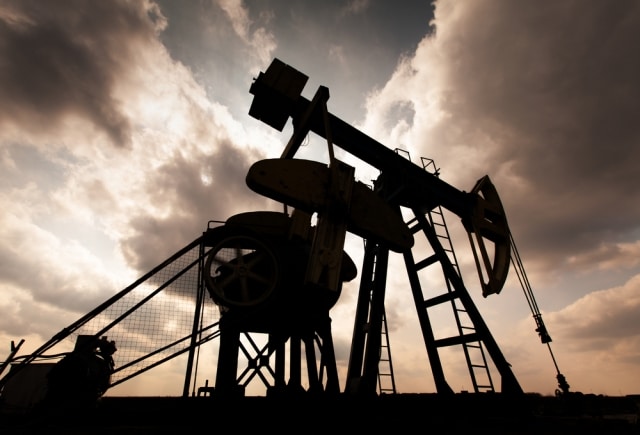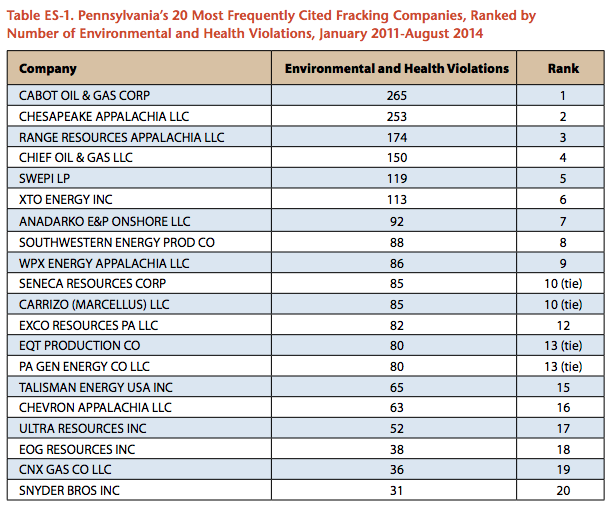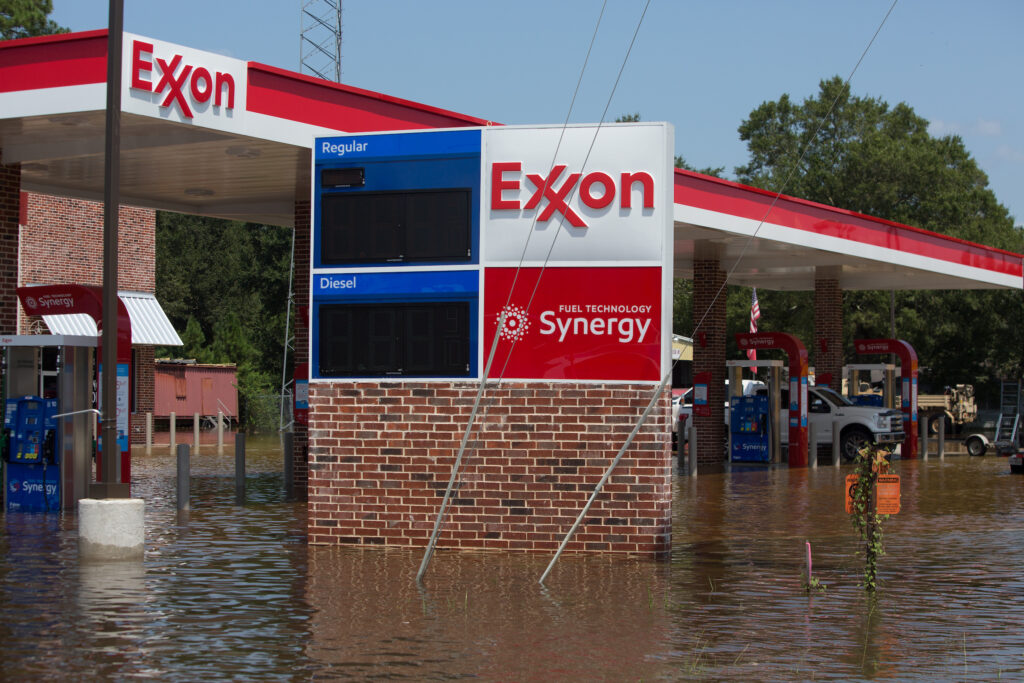From the American Petroleum Institute’s claim that fracking is “safely unlocking vast U.S. reserves of oil and natural gas” to Chris “Frack Master” Faulkner himself insisting “fracking isn’t contaminating anything,” the oil and gas industry constantly tells us that fracking can be done safely, despite plenty of evidence to the contrary.
But just to be sure the public understands how seriously they considered public health, a group of oil and gas companies fracking in Pennsylvania formed the Center for Sustainable Shale Development in 2013. According to its website, CSSD is dedicated to “the development of rigorous performance standards for sustainable shale development and a commitment to continuous improvement to ensure safe and environmentally responsible development of our abundant shale resources.”
“Rigorous performance standards for sustainable shale development” certainly sounds great. The only problem is, none of the four companies that founded CSSD — Chevron Appalachia, Consol Energy, EQT Production and Shell — seems to have actually adhered to those standards.
According to a new report by Environment America titled “Fracking Failures: Oil and Gas Industry Environmental Violations in Pennsylvania and What They Mean for the U.S.,” ever since those four companies “told the public they would adhere to higher standards” in 2013, they have collectively committed as many as 100 violations of Pennsylvania’s existing oil and gas regulations.
And that is hardly the whole story in terms of what Environment America found: “In Pennsylvania, fracking companies violate rules and regulations meant to protect the environment and human health on virtually a daily basis. Between January 1, 2011, and August 31, 2014, the top 20 offending fracking companies committed an average of 1.5 violations per day.”
Disregarding regulations appears to be an industry-wide practice: Among the top 10 violators are subsidiaries of Big Oil behemoths like ExxonMobil and Shell as well as smaller companies like Cabot Oil & Gas and Chesapeake Appalachia.
Here is a chart listing the top 20 violators of Pennsylvania’s oil and gas regulations:
The violations these companies were cited for pose serious risks to adjacent communities, too:
• Allowing toxic chemicals to flow off drilling sites and into local soil and water. In July 2012, for example, Chief Oil & Gas was cited by the Pennsylvania Department of Environmental Protection (DEP) when the company allowed 4,700 gallons of hydrochloric acid to flow off of its drilling site in Leroy Township, Bradford County, and into nearby Towanda Creek, causing a fish kill.
• Endangering drinking water through improper well construction. Well problems, including leaks, contaminated drinking water supplies in as many as 243 cases across Pennsylvania between December 2007 and August 2014 – 81 of them between 2011 and 2014. In one such case Carrizo (Marcellus) LLC was cited for failing to properly restore a water supply its fracking activities had contaminated.
• Dumping industrial waste into local waterways. One operator, EQT Production, was cited twice in 2012 by the Pennsylvania Department of Environmental Protection (DEP) for violations at a well in Duncan Township, Tioga County, that polluted a local stream.
• Otherwise disposing of waste improperly. In one 2012 incident at an Exco Resources well in Bell Township, Clearfield County, the company was cited for contaminating underground drinking water supplies as a result of leaks from a well drilled for the specific purpose of injecting toxic waste underground.
Environment America says that the report only counts those violations that received citations from state officials, because of “Pennsylvania’s consistent pattern of conducting fewer inspections than state rules require, and because inspectors regularly decline to issue violation notices when companies voluntarily agree to fix problems.” So the actual number of violations is probably much higher.
There’s good reason to think that these violations are not limited to Pennsylvania: “Studies in other states have shown similar problems of violations and environmental damage from fracking. There is little reason to believe, therefore, that fracking operations in Pennsylvania are substantively different from other states in their ability to cause harm or to commit repeated violations of health and safety laws.”
The top violator companies have fracking operations or own mineral rights in 23 other states.
So what can states do? Environment America’s report has a list of policy prescriptions for states where fracking is already taking place. But of course, the most prudent measure is to ban fracking before it even begins, as Governor Andrew Cuomo did in New York last month.
Image Credit: Calin Tatu / Shutterstock.com
Subscribe to our newsletter
Stay up to date with DeSmog news and alerts








